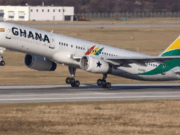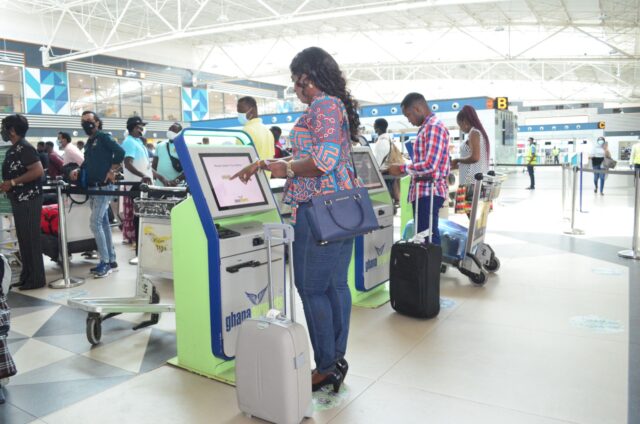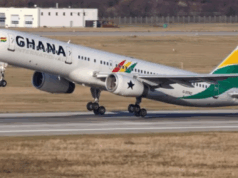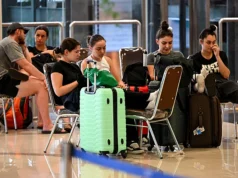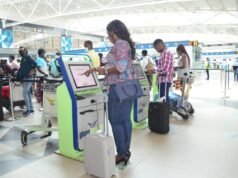Airports Brace for Surge in Passenger Numbers | By Dominick Andoh | A new study published by SITA has revealed that airports worldwide face unprecedented challenges that demand innovative solutions.
Global passenger numbers are projected to double over the next twenty years, putting an enormous burden on airports.
The study forecasts that passenger traffic will more than double between 2023 and 2043, with a net addition of over 4.1 billion passenger journeys. The International Air Transport Association (IATA) also predicts a total global number of 7.9 billion in 2043.
With the air travel industry rebounding post-pandemic, airports cannot expand their physical infrastructure at the same rate as rising passenger demand.
According to the study, the aviation sector is pivoting towards smarter technology and streamlined operations to enhance the passenger experience without the need for expansive construction projects.
“Airports are already making significant strides; they are actively investing in advanced technological solutions aimed at reducing friction, optimising processes, and expediting passenger journeys. Key trends include the widespread implementation of mobile applications, artificial intelligence, and digital systems integration,” the study noted.
A pronounced focus on sustainability, particularly efforts to reach net-zero emissions, is also guiding the transformation of airport infrastructure.
Biometrics and Digital Travel Credentials (DTCs)
The study highlights that a key development in passenger processing is the use of biometrics and Digital Travel Credentials (DTCs). Airports around the globe are increasingly moving essential services away from their premises and adopting intermodal travel options to reduce congestion.
Additionally, airport operations are undergoing significant changes through the implementation of robotics, automation, and predictive maintenance, facilitating the shift toward Total Airport Management (TAM). Improved tracking and tracing systems for baggage, along with greater automation, are also enhancing the efficiency of airport operations.
Looking ahead, the vision for the future airport encompasses a fully interconnected environment, providing a comprehensive view of data, processes, and operational opportunities. The study indicates that by 2025, passenger numbers are expected to exceed 5 billion, and the number of global flights is forecasted to surpass 40 million for the first time in history. This surge poses a considerable challenge, as existing airport infrastructure is often neither expandable nor adaptable to sudden spikes in passenger volume.
Financial constraints and a lack of political support for extensive infrastructure expansions further complicate the situation. Airports must now identify innovative methods to accommodate growing numbers of passengers within their existing confines. This includes embracing advanced self-service options, embracing AI-driven solutions, and developing secure off-airport processes.
Additionally, airports are recognizing the need for more agile and flexible workforce structures. A SITA survey highlighted that nearly one-third of respondent airports see this as a pressing challenge. By reallocating staff where they are most needed, airports can enhance passenger processing speed and create a more efficient travel experience.
Deployment of DTCs at Accra’s Kotoka International Airport
Over the years, Ghana has rolled out some biometrics and Digital Travel Credentials (DTCs) technology, albeit on a small scale.
The erstwhile government inaugurated e-gates at Accra’s Kotoka International Airport last December and touted them as crucial for fast passenger processing, especially during nighttime flights, to reduce congestion and improve the travel experience. However, the system is not fully utilised now largely because of the cost of usage of the dedicated e-gates.
Boarding pass scanners installed at the Terminal 3 departure hall of the Kotoka International Airport have been functional and useful for collecting passenger data and have totally eliminated the need to complete physical immigration cards prior to departure.
Airports Brace for Surge in Passenger Numbers | AviationGhana




